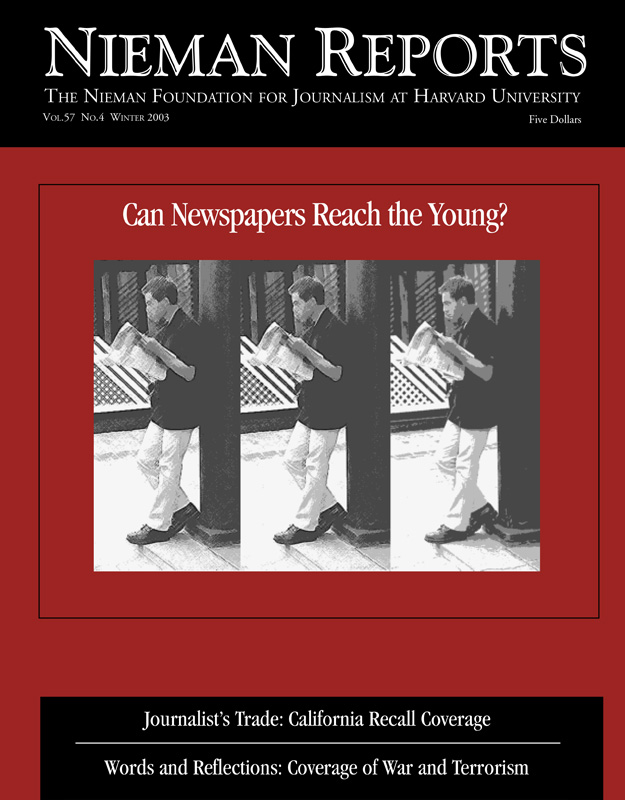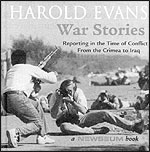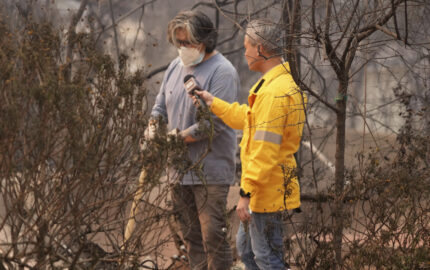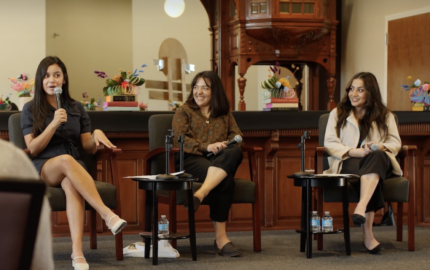

War Stories: Reporting in the Time of Conflict From the Crimea to Iraq
Harold Evans
Bunker Hill Publishing. 96 Pages. $12.95.
“Writing may be hard for everyone, but it is hardest of all for the war correspondent. He or she has to find the order of words that neither sensationalize nor downplay, that neither oversimplify nor stupefy, conscious always that lives may be at stake, that decisions of gravity may be taken on the strength of a few hundred words. Is the story accurate? Is it clear? Is it fair? How much personal emotion should it contain, if any? Is it meaningful? [War correspondent] David [Blundy], naturally, doubted whether he met the tests he set himself. On assignment from Britain’s The Correspondent in El Salvador’s civil war on November 17, 1989, he already had filed a good dispatch. Then he called in that morning to say he was going out in the barrio to see if he should top up the story with one last paragraph. There, on a street corner, a random bullet took his young life.
“It seemed to those of us who were his friends that his ‘last paragraph’ was a mortal redundancy. And yet the unwritten last paragraph, the untaken last photo frame, is the true memorial of the war correspondent. To Blundy, there was a chance that the material gathered for his last paragraph just might affect the balance and readability of his story, and that was all that mattered. …
“In their long history—for wars have always been with us—there is much romance and adventure, but a brutal reality, too. And there are many questions. Should a correspondent or the editor ever put truth second to his own country’s perceived national interests? What does history have to tell us about the consequences of evading the censor? In foreign wars, is it ever proper to sympathize with one side or another? Should a correspondent always keep a professional detachment or has he or she a higher duty when it is possible to intervene and save a life? What public benefit is there—if any—in the firsthand picture of conflict, or does it amount to no more than voyeurism? There are no simple answers.”
Reprinted with permission of the publisher, author and the Newseum.


